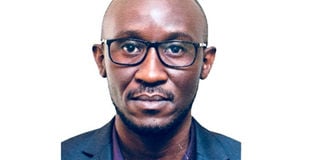As a Ugandan youth, why would Police brutality in Nigeria concern you?

What you need to know:
- Interestingly, the people who advanced that argument don’t even believe it! When protests against police brutality broke out in Nigeria, they quickly joined the ‘struggle’ (on social media, that is). Never mind that Uganda, like many other countries, also has police brutality. Suddenly, the same people against Uganda addressing gaps in Congo, our immediate neighbor with whom we have very close ties, were clamoring over gaps in Nigeria, a distant country with fewer ties.
When Uganda decided to contribute $53.6 million to construct roads in neighboring Congo, a section of Ugandans criticized the move. They claimed it was illogical for a low-income country like Uganda to finance road construction in another country when Uganda still has terrible roads. What they meant is, “Let’s sort out our problems before attempting to solve other people’s problems.” This is excellent personal advice (Mathew 7:5); however, it is unclear if it applies to countries.
Interestingly, the people who advanced that argument don’t even believe it! When protests against police brutality broke out in Nigeria, they quickly joined the ‘struggle’ (on social media, that is). Never mind that Uganda, like many other countries, also has police brutality. Suddenly, the same people against Uganda addressing gaps in Congo, our immediate neighbor with whom we have very close ties, were clamoring over gaps in Nigeria, a distant country with fewer ties.
Could it be that we jump on causes simply because they are trending - not because we’ve carefully studied how they impact Uganda’s destiny?
There is no doubt that the destiny of Uganda is closely linked with that of her immediate neighbors. Economically, Kenya, DRC, South Sudan, Sudan, and Tanzania account for over 40 per cent of our export earnings.
In the last financial year, we earned about $500 million from DRC, making it our third top export destination.
So, investing in Congo’s roads is rational. It eases the transportation of our exports, which directly benefits us.
On the other hand, how does joining the #EndSARS movement benefit Uganda? Of all the problems and protests in the region and the world, why prioritize #EndSARS?
Is the Nigerian police committing mass murder or genocide to warrant our immediate attention and youthful energy? If it is a governance issue in one section of the police, Nigerians can surely solve it independently. Besides, don’t we have our own police brutality to deal with in Uganda?
Wouldn’t it be better for us to spend most of our youthful energy studying and solving Uganda’s problems? By that, I mean solving the problems Ugandans have, not the problems we imagine they have.
For instance, we say Ugandans lack freedom, but Ugandans do whatever they want; treating the law like it is merely good advice. The few whose freedoms are restricted are political actors seeking to overthrow or undermine the current government for one reason or the other.
Otherwise, what the average Ugandan lacks are opportunities and the capacity to earn – not freedom.
Besides corruption and lack of freedom, we also allude to “lack of democracy.” But even if that were true, democracy is just another trending word, a political blank cheque that people load with whatever they want. It is hard to tell what amounts to democracy. Its power lies in its vague definition. But whatever its meaning, democracy is not the magic bullet for progress. Locally, Buganda progressed, and elsewhere, Britain became a global power without it.
In other words, we can advance without ‘democracy’.
Besides, democracy is neither the first nor the last leap of humankind. There is so much more to human progress.
If we, the youth, are serious about transforming Uganda, we must carefully study and understand our society, its composition, challenges, and existential threats; why these are the way they are, and how they can change. It is only by accurately diagnosing our problems that we can begin to prescribe the right solutions.
Mr Kibudde is a sociopolitical thinker
[email protected] Twitter: @kkaboggoza




